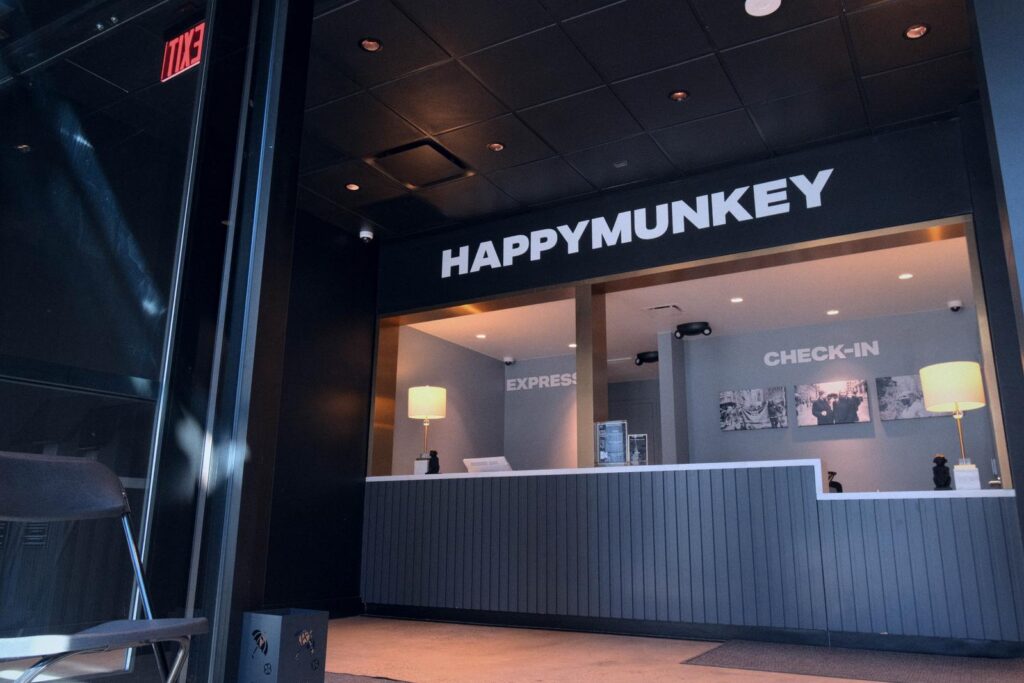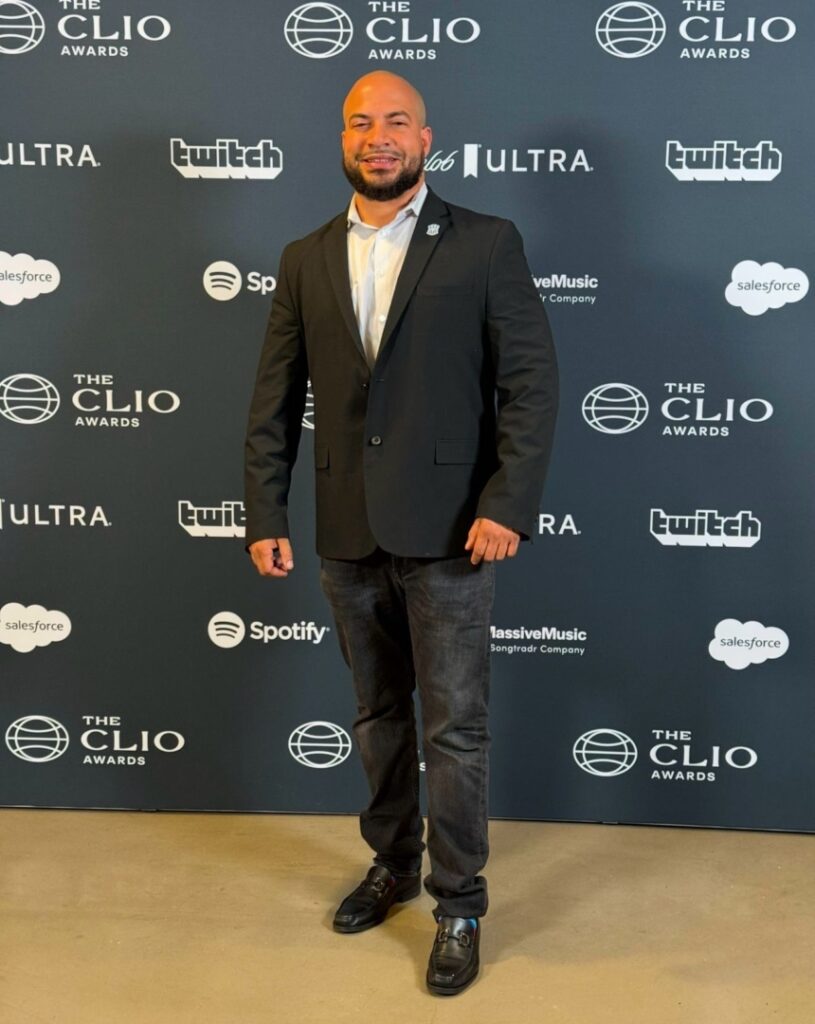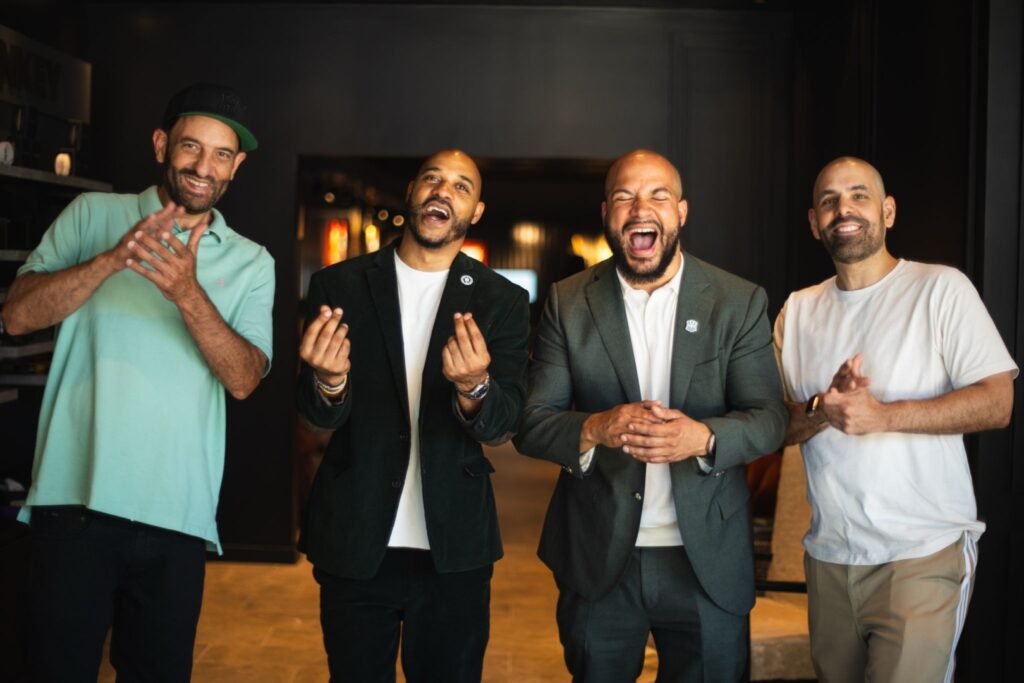Zinger Key Points
- Happy Munkey evolved from legacy lounge to legal NYC dispensary with deep cultural roots.
- Co-founders Bautista & Reyes lead with equity, pride & community-focused retail.
- NY’s social equity model allowed Latino entrepreneurs to genuinely own space in legal cannabis.
- Join Chris Capre on Sunday at 1 PM ET to learn the short-term trading strategy built for chaotic, tariff-driven markets—and how to spot fast-moving setups in real time.
In New York's cannabis game, the rules are different. This isn't Illinois or Florida or Pennsylvania, where massive multistate operators often dominate the market and set the pace. Nor is it a rush to grab VC dollars. In New York, ambition means ownership placed directly in the hands of those locked out for decades. Inclusion here isn't a slogan; it's the blueprint, the norm. And few embody this better than Happy Munkey.
The brand, co-founded by Vladimir Bautista and Ramon Reyes, operates licensed dispensaries in Uptown Manhattan and Downtown Brooklyn.
The storefronts are new. The journey goes back years. Happy Munkey existed long before legalization, first as an underground cannabis lounge, then as a lifestyle brand rooted in Latino culture. Now, it's fully legal, fully bilingual and fiercely proud.
This is what equity looks like when the neighborhood builds it.

"Today we want to recognize all the Latino entrepreneurs in our industry here in New York," Bautista told Benzinga. His tone was prideful yet clear and firm – a statement that demanded attention.
Legalization With Purpose
When New York legalized cannabis in 2021, the state promised to center those who suffered the most during prohibition. Decades of aggressive policing had left Black and Latino communities disproportionately harmed. In 2020 alone, NYPD data shows that more than 90% of low-level marijuana arrests targeted Black and Latino New Yorkers. That's the reality New York chose to address head-on.
The state's Office of Cannabis Management introduced the Conditional Adult-Use Retail Dispensary (CAURD) program, explicitly prioritizing people directly impacted by cannabis criminalization. By late 2024, more than half of CAURD licenses had gone to justice-involved entrepreneurs from historically targeted neighborhoods.
Happy Munkey was among those first license recipients—not by luck, but by history. Bautista and Reyes had already earned trust, built infrastructure and created community ties. Legalization only confirmed what the streets already knew.
"What's important, my people," Bautista explained, "is that the whole world knows Latinos are succeeding here. We're entrepreneurs. We own our future. And we're proudly raising the Latino flag high."
Legacy Market Origins
In 2017, years before legalization became a reality, Happy Munkey existed underground. It offered private lounges where people gathered without stigma. Events that mixed cannabis, music and art created a genuine sense of belonging. The founders also launched The Happy Munkey Podcast, Munkey TV and Munkey Magazine, platforms normalizing cannabis culture openly.
When New York made legalization official, Happy Munkey simply continued its mission. First, with a dispensary at 151 Dyckman Street in Inwood, the neighborhood where Bautista and Reyes grew up. Soon after, a second location opened at 453 Fulton Street in downtown Brooklyn, near Barclays Center. Both dispensaries are open daily from 10 a.m. to 10 p.m., offering flower, pre-rolls, concentrates, tinctures, edibles and vapes.
But the attraction isn't just products; it's people. The bilingual team moves effortlessly between English and Spanish, welcoming visitors with warmth and familiarity.
"It feels like home," said a first-time customer from Argentina visiting Dyckman. "They speak our language—literally. Entering a dispensary can feel overwhelming. Having someone explain things to me in Spanish made it easy. Easy-peasy."
Recognition From Forbes And Beyond
In 2024, Forbes placed Bautista and Reyes on its annual Cannabis 4:20 list, highlighting influential cannabis entrepreneurs across the U.S. Forbes' list focused specifically on independent, smaller brands reshaping the industry without massive corporate backing.
In addition, Happy Munkey received two Clio Awards—in 2023 and 2024—for innovative branding and community-focused storytelling. Still, Bautista emphasizes these accolades aren't the ultimate goal.

"The genesis of Happy Munkey comes from a desire to provide safe, legal cannabis to the community that's given so much to us," Bautista told Cannabis Now in a recent interview.
The commitment is clear in the brand's daily operations: hiring locals, educating neighbors, hosting cultural events and advocating for policy change. The spaces it creates resonate with local voices, whether through hip-hop playlists, Latino artwork or casual conversations that make dispensary visits feel familiar and welcoming.
No Franchise Dreams, Only Authentic Roots
Happy Munkey isn't pursuing national scale or rapid expansion. Bautista has compared his vision to TAO Nightclubs: carefully chosen locations built around authentic cultural impact rather than uniform franchises.
This intentional approach has shaped Happy Munkey's unique identity. In a city projected to reach $4.2 billion in cannabis sales by 2027, Happy Munkey stands out—not because it's big, but because it's real.
In New York, where cannabis legalization arrived with the promise of equity, Happy Munkey shows how that promise can become a reality. Built by Latinos from the neighborhoods that prohibition once harmed, the brand's success reflects genuine community ownership.
Cannabis here is personal, and Happy Munkey ensures it remains that way: local, bilingual, and deeply rooted. It's a success story the city desperately needed.

Photo: The partners in Happy Munkey: John Ibonnet, Ramón Reyes, Vladimir Bautista and Omar Ibonnet (L-R).
And it's not alone. Across the five boroughs, other Latino entrepreneurs are carving out their space in the legal market, too:
- Coss Marte, owner of CONBUD.
- Jose Polanco, of Polanco Brothers.
- Jeremy Rivera, running Terp Bros.
- Gabe Encarnación, founder of Glena & Co.
- Miguel Brito, behind The 1 Brand.
The movement isn't just about one brand. It's a collective wave, building a legacy where prohibition once tried to erase it.
Photos courtesy of Happy Munkey. Lead image: Happy Munkey co-founder Vladimir Bautista with U.S. Representative Adriano Espaillat — the first Dominican American and first formerly undocumented immigrant elected to Congress, and current Chair of the Congressional Hispanic Caucus.
© 2025 Benzinga.com. Benzinga does not provide investment advice. All rights reserved.
Trade confidently with insights and alerts from analyst ratings, free reports and breaking news that affects the stocks you care about.
Cannabis is evolving—don’t get left behind!
Curious about what’s next for the industry and how to stay ahead in today’s competitive market?
Join top executives, investors, and industry leaders at the Benzinga Cannabis Capital Conference in Chicago on June 9-10. Dive deep into market-shaping strategies, investment trends, and brand-building insights that will define the future of cannabis.
Secure your spot now before prices go up—this is where the biggest deals and connections happen!